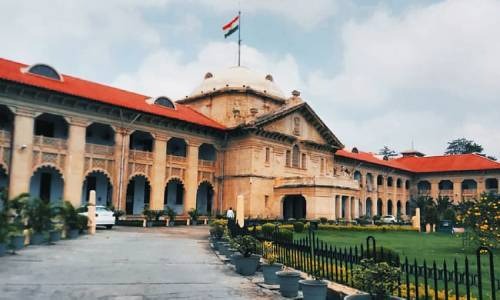
Case Title: Babu V. State of U.P
"No accused person is incapable of being reformed and therefore, all measures should be applied to give them an opportunity of reformation in order to bring them in the social stream," the Allahabad High Court recently observed as it modified the sentence of an accused convicted under Section 304 Part 1 IPC.
The bench of Justices Dr. Kaushal Jayendra Thaker and Ajai Tyagi further emphasized the need to avoid using excessive severity in sentencing while keeping in mind the reformative philosophy that guides our criminal justice system.
The panel was deliberating on an appeal filed by Babu, who had been found guilty by the Court of Additional Session Judge in Badaun in May 2013 under Section 304(i) read with Section 34 IPC and under Section 4/25 Arms Act. The defendant/appellant was convicted guilty of murdering Rani along with co-defendant Munna (deceased). According to the prosecution's evidence, the complainant (Kamlesh) was traveling home with her mother Rani (dead) on April 20, 2010, after buying vegetables. Both the accused approached from behind, and when Babu put his hand on his mother's shoulder, she jerked and went forward. This enraged Babu, and he pulled a knife from his trousers and stabbed her in the belly. Both accused individuals fled. Rani succumbed to the injuries.
The appellant's attorney argued before the court that he was not pursuing this appeal on the basis of merit but rather was merely asking for a sentence reduction. He claimed that the trial court's life sentence for the appellant was excessively severe. Additionally, he claimed that the appellant had been imprisoned for almost nine years.
The Court made the first observation that nothing had surfaced that may be of any use to the appellant. The Court noted that the investigating officer found the knife used in the crime after being pointed out by the accused-appellant Babu.
The Medical evidence further indicates that Injury No. 2 as ante mortem, described in the Postmortem Report, is the Injury that might be caused by weapon like a knife, the Court further remarked. The Court noted that medical evidence also supported the ocular version of eyewitness PW2's testimony.
In light of the Court's determination that the accused committed the crime, it was decided to evaluate whether the life sentence and fine were appropriate or if a different punishment was necessary.
The Court took the decisions of the Apex Court into consideration while stating that when weighing the application of just punishment, the effects of crime on society at large and the rule of law need to be weighed.
The Court added the following observation, highlighting the country's judicial tendency of balancing punishment and reform:
"The protection of society and stamping out criminal proclivity must be the object of law which can be achieved by imposing appropriate sentences on criminals and wrongdoers. Law, as a tool to maintain order and peace, should effectively meet challenges confronting society, as a society could not long endure and develop under serious threats of crime and disharmony. It is, therefore, necessary to avoid undue leniency in the imposition of sentences. Thus, the criminal justice jurisprudence adopted in the country is not retributive but reformative and corrective. At the same time, undue harshness should also be avoided keeping in view the reformative approach underlying our criminal justice system."
The Court further emphasised that, given all of the relevant facts and circumstances, as well as the seriousness of the offence, the learned trial court's sentence of a life term in the present case was very severe. As a result, the trial court's original sentence was changed into 10 years of strict imprisonment and a fine of Rs. 10,000, under Sections 304 Part I and 34 of the IPC to apply to the appellant Babu.

